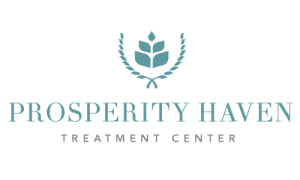RESIDENTIAL REHAB
IN CHARDON, OH
A Haven of Positivity for Men to Prosper in Recovery
Residential Inpatient Drug Rehab
Join inpatient rehab at Prosperity Haven and start your journey toward recovery. We pride ourselves on providing every aspect of residential inpatient drug and alcohol rehabilitation at the highest standard possible. We stop at nothing to ensure our patients get their lives back and enjoy long-term sobriety.
Our residential inpatient drug rehab offers a supportive environment that fosters:
-
Self-improvement – working on yourself to better cure your addiction
-
Proven therapies – helping you heal and develop a recovery tool-kit
-
Daily fellowship activities – allowing you to form strong, life-long bonds with your peers
This comprehensive approach is a key ingredient to our inpatient rehab recipe for success because it not only helps you stay clean during rehab, it helps you build a strong foundation for lasting sobriety.
During inpatient addiction rehab, you’ll work with our team of licensed drug and alcohol addiction counselors — both in group and individual therapy sessions — to uncover and address the root causes of your substance use disorder. You will build crucial coping skills and stress management techniques, and learn how to avoid and manage triggers that could result in relapse. You’ll also have access to our beautiful residential rehab facility, located on a wide-open lot in Chardon, Ohio. Our location offers plenty of open space to clear your mind and enjoy the peace and quiet. When you choose Prosperity Haven for inpatient rehabilitation, you’re setting yourself up for success in a warm and caring environment.

 CHARDON INPATIENT ADDICTION TREATMENT
At Prosperity Haven, our Residential Inpatient addiction treatment program is designed to provide you with a supportive environment that fosters self-improvement, proven therapies centered around helping you heal and develop a recovery tool-kit, and daily fellowship activities that allow you to form strong, life-long bonds with your peers. This comprehensive approach is a key ingredient to our recipe for success because it not only helps you stay clean during rehab, it helps you build a strong foundation for lasting sobriety.
During residential programming, you’ll work with our team of licensed addiction counselors — both in group and one-on-one settings — to uncover and address the root causes of your addiction, build crucial coping skills and stress management techniques, and learn how to avoid and manage triggers that could result in relapse. You’ll also have access to our beautiful residential rehab facility, located on a wide-open lot in Chardon, Ohio, offering plenty of open space to clear you mind and enjoy the peace and quiet. When you choose Prosperity Haven for inpatient treatment, you’re choosing to start recovery in a place that feels like home.
CHARDON INPATIENT ADDICTION TREATMENT
At Prosperity Haven, our Residential Inpatient addiction treatment program is designed to provide you with a supportive environment that fosters self-improvement, proven therapies centered around helping you heal and develop a recovery tool-kit, and daily fellowship activities that allow you to form strong, life-long bonds with your peers. This comprehensive approach is a key ingredient to our recipe for success because it not only helps you stay clean during rehab, it helps you build a strong foundation for lasting sobriety.
During residential programming, you’ll work with our team of licensed addiction counselors — both in group and one-on-one settings — to uncover and address the root causes of your addiction, build crucial coping skills and stress management techniques, and learn how to avoid and manage triggers that could result in relapse. You’ll also have access to our beautiful residential rehab facility, located on a wide-open lot in Chardon, Ohio, offering plenty of open space to clear you mind and enjoy the peace and quiet. When you choose Prosperity Haven for inpatient treatment, you’re choosing to start recovery in a place that feels like home. 
What Are Residential Treatment Centers?
Residential treatment centers are licensed, live-in rehabilitation programs to help clients who suffer from an addiction to drugs or alcohol gain sobriety. Intensive therapeutic care is provided at an inpatient rehab program in a structured, supportive, and immersive setting.
At Prosperity Haven, we believe in the benefits of a step-down treatment model. This type of treatment allows clients to transition into less intensive levels of care at their own pace and gradually disengage from residential rehab in a way that supports sustained recovery. Residential Inpatient treatment is the most substantial level offered in the Prosperity Haven continuum of care. In most cases, it takes place after you’ve completed a Drug and Alcohol Detox process but before PHP (Partial Hospitalization Program), IOP (Intensive Outpatient Program), or any other outpatient rehab program.
Along with our supportive addiction counselors, you’ll also work closely with other members of our treatment team. A case manager will act as a trusted guide and confidante during your time in inpatient care and will help you stay on track with your recovery. Throughout your time in our treatment facility, your case manager will help you plan for your life after rehab, working with you on job placement or school enrollment, living arrangements, setting you up with weekly group meetings, and anything else you need to live a functional, sober life outside of our Chardon residential program.
How Do I Know If I Need an Inpatient Rehab Program?
There are several indicators that one can use to decide if an inpatient program will be right for them. If any of the following points apply to you, we’d recommend a residential drug abuse program:
Previous attempts at outpatient addiction treatment programs have failed
Your day-to-day environment is not conducive to sustained recovery
Despite trying, you cannot get sober
You suffer the physical consequences of your alcohol or drug use addiction
You suffer from a co-occurring disorder in addition to addiction
You’re stuck in legal issues as a result of your addiction
Addiction Recovery Services In Residential Treatment
Once you’ve decided that inpatient drug and alcohol rehab is the right decision for you, you can expect the following treatment services at our drug rehab center:
 WHAT IS RESIDENTIAL INPATIENT TREATMENT?
WHAT IS RESIDENTIAL INPATIENT TREATMENT?
We believe in the benefits of a step-down model of treatment, allowing clients to transition into less intensive levels of care at their own pace and gradually disengage from rehab in a way that supports sustained recovery. Residential Inpatient treatment is the most substantial level offered in the Prosperity Haven continuum of care. In most cases, it takes place after you’ve completed Drug and Alcohol Detox but before PHP, IOP, or any other outpatient program, such as our Telehealth IOP. Along with our supportive addiction counselors, you’ll also work closely with a case manager who will act as a trusted guide and confidante during your time in rehab and will help you stay on track with your recovery. Throughout your time in our facility, your case manager will help you plan for your life after rehab, working with you on job placement or school enrollment, living arrangements, setting you up with weekly group meetings, and anything else you need to live a functional, sober life outside of our Chardon rehab center.

Because addiction affects everyone in different ways, our licensed addiction counselors will spend time finding an approach that works for each client in inpatient drug rehab. During your one-on-one counseling sessions, we’ll help uncover the sources of your drug or alcohol abuse, define your recovery goals, and offer support while you develop the essential skills you need to overcome your addiction and lead a healthy, sober life.
During residential drug treatment, we help clients build a strong foundation from the ground up. Individual therapy and counseling sessions are where clients can reflect on their own experiences with addiction and isolate the sources. Getting physically sober, while challenging, is fairly straightforward. Getting mentally and emotionally clean — which means understanding the bigger picture of your specific needs and struggles with drugs and alcohol so that you can address them through therapy — isn’t, which is why we dedicate significant time to this inpatient drug and alcohol treatment.
Popular therapy options we offer include cognitive behavioral therapy, rational emotive behavior therapy, dialectical behavior therapy, and internal family systems.

At Prosperity Haven, we’ve seen firsthand the power that comes from brotherhood and breaking the isolation that addiction can bring. Our group therapy sessions allow you to lean on your peers for support and guidance, while also learning from each other’s experiences and insights. Our men’s rehab includes participating in support groups that allow you to speak honestly about what you’re going through to an audience of peers, many of whom can relate directly to your struggles during the recovery process.
Within families, it’s natural for addiction to put tension and stress on your loved ones, which is why we like to get them involved in therapy — but it’s up to your comfort and discretion. If you’re interested in family therapy during the treatment process, we’ll help you communicate with your loved ones, both to explain your experience and to better understand theirs. These sessions rebuild broken bonds, strengthen your support network, and find ways for family members to positively impact your recovery once you’re no longer living in our addiction treatment center.

 HOW LONG IS INPATIENT DRUG REHAB?
HOW LONG IS INPATIENT DRUG REHAB?
We Believe that progressing at a pace that’s right for you is critical to your success in rehab, which is why our residential treatment program has 30, 60, and 90-day tracks. Studies have shown that the longer you stay in rehab, the less likely you’ll be to relapse and fall back into the same harmful activities. Addiction treatment authorities like the National Institute on Drug Addiction (NIDA) agree that the best outcomes occur with longer durations of treatment. However, it’s not always possible to put your life on hold — that’s why we work to provide treatment that meets your unique needs. We realize that different clients will follow different timelines in recovery. That’s why we created a flexible Inpatient Residential treatment program, and it’s also why we provide clients with an opportunity to continue treatment as they transition into our Partial Hospitalization Program (PHP).

Dual Diagnosis
Many addicts suffer from issues such as anxiety, depression, or Post Traumatic Stress Disorder (PTSD). Because addiction and mental health issues feed off of one another — making both conditions more complex and difficult to treat — it’s important that we treat them with respect to each other. The first step is proper diagnosis, and our expert team of health professionals has a great deal of experience in unmasking mental health disorders if one is present.
Once a co-occurring disorder to addiction has been identified, our substance abuse counselors will work with you to develop an individualized recovery plan that gives equal attention to your addiction and your unique mental health. By disentangling the ways addiction and other mental health disorders make each other worse, our medical professionals can help you understand your complex thought processes and find healthier coping methods.
Holistic Services
While our evidence-based therapies are crucial to recovery, we’ve seen firsthand how addiction affects every part of a person. Through a variety of activities, therapies, and treatment options our holistic approach is designed to help you heal physically, mentally, emotionally, and spiritually. These activities include mindfulness exercises, group sensory hikes, and other meditative practices that are all guided by our experienced team of licensed clinicians.
Prosperity Haven’s inpatient alcohol rehab also recognizes how important it is to recover in a distraction-free environment when you’re overcoming an addiction, and we’re fortunate to be able to integrate our natural surroundings into treatment. Our remote inpatient rehab facility in Chardon offers a peaceful, serene, home-like environment perfect for self-reflection and stress relief. When combined with our residential program’s other therapies and life skills development, holistic services can help improve your overall wellness and fully prepare you for your life in recovery.



Life Skills
Addiction can rob a person of healthy development while they’re using. We believe that being able to manage responsibilities, money, stress, and a daily routine can go far in helping avoid relapse. We help you build these abilities through our life skill workshops, while also ensuring you can practice self-care. These sessions will help you focus on gaining tools specifically related to managing recovery. These include trigger avoidance, relapse prevention, learning how to have a fulfilling social life while staying sober, and also building practical foundations for living a life that’s “normal”. We’ll help you:
- Handle stress in a healthy way
- Manage your career development
- Take care of financial responsibilities
- Maintain a proper diet
- Communicate more effectively

How Long Is Residential Inpatient Drug Rehab?
We believe that progressing at a pace that’s right for you is critical to your success in rehab, which is why our residential treatment program offers various tracks and lengths of stay. Studies have shown that the longer you stay in rehab, the less likely you’ll be to relapse and fall back into the same harmful activities. Addiction treatment authorities like the National Institute on Drug Addiction (NIDA) agree that the best outcomes occur with longer durations of treatment. However, it’s not always possible to put your life on hold while at a residential rehab facility — that’s why we work to provide effective treatment that meets your unique needs and facilitates long-term recovery.
We realize that different clients will follow different timelines in recovery. That’s why we created a flexible Inpatient Residential treatment program, and it’s also why we provide clients with an opportunity to continue the treatment process as they transition into our Partial Hospitalization Program (PHP) and then to outpatient care.
How Much Does Residential Inpatient Treatment Cost?
Prosperity Haven offers various lengths of stay. At our inpatient facility, the clinical staff advises clients on how long they recommend based on their background and individual needs. The treatment cost depends on the length of stay.
We work with many insurances. Your health insurance will cover the majority of the cost for inpatient rehabilitation at an approved treatment provider, although it may not cover the entirety of your substance abuse treatment. At Prosperity Haven, we don’t believe your insurance coverage should keep you from accessing the quality care you need. Our experienced admissions coordinators will work closely with your healthcare insurance provider on your behalf to make sure that you receive the maximum insurance benefits. Reach out to us and we’ll do everything we can to make sure there are no obstacles in your journey toward recovery.

the Prosperity Haven Difference
We know it’s a tough decision to find help for you or a loved one, so what should you be looking for? At Prosperity Haven’s Ohio, United States treatment center, we take the time to get to know our clients and work with them one-on-one to find a plan that meets their needs. We also work exclusively with males, treating no more than nine clients at a time. This not only creates bonds of brotherhood; it allows clients to speak openly about their addiction without feeling judged or embarrassed.
Addiction doesn’t need to be fought alone, which is why we’re committed to doing everything we can to help you or your loved one enjoy a life free from drugs or alcohol.
WHAT CLIENTS SAY ABOUT US:
”Take it from someone who has been in and out of rehab 5 times – this program really works. I’ve been sober for nearly 7 months now, which is the most amount of time I’ve been able to stay clean in a very long time. This place gave me the tools I needed to be able to live a ‘normal’ life without picking up a drink. They helped me explore parts of my life that I never really considered as things that contributed to my addiction. They helped me rediscover my own happiness so I can get back to making those around me happy. My life had been gradually falling apart more and more for so long, and Prosperity was exactly the hand I needed to help me put it back together.”
– Gabe J.
INDIVIDUAL COUNSELING
Because addiction affects everyone in different ways, our licensed addiction counselors will spend time finding an approach that works for each client in rehab. During your one-on-one counseling sessions, we’ll help uncover the sources of your drug or alcohol abuse, define your recovery goals, and help you develop the essential skills you need to overcome your addiction and lead a healthy, sober life. In Residential Inpatient programming, we help clients build a strong foundation from the ground up. This is where clients can really reflect on their own experiences with addiction and isolate the sources. Getting physically sober, while challenging, is fairly straightforward. Getting mentally and emotionally clean —which means understanding the bigger picture of your struggles with drugs and alcohol so that you can address them through therapy — isn’t, which is why we dedicate significant time to this in inpatient treatment.
 GROUP AND FAMILY THERAPHY
GROUP AND FAMILY THERAPHY
At Prosperity Haven, we’ve seen firsthand the power that comes from brotherhood and breaking the isolation that addiction can bring. Our group therapy sessions give you the opportunity to lean on your peers for support and guidance, while also learning from each other’s experiences and insights. Our all-male rehab groups allow you to speak honestly about what you’re going through to an audience of peers, many of whom can relate directly to your struggles. With families, it’s natural for addiction to put tension and stress on your loved ones, which is why we like to get them involved in therapy — but it’s up to your comfort and discretion. If you’re interested in family therapy, we’ll help you communicate with your loved ones, both to explain your experience and to better understand theirs. These sessions rebuild broken bonds, strengthen your support network, and find ways for loved ones to make a positive impact on your recovery once you’re no longer living in our facility.
 DUAL DIAGNOSIS
DUAL DIAGNOSIS
Individuals who suffer from addiction often struggle with mental health issues like anxiety, depression, or Post Traumatic Stress Disorder (PTSD). Because addiction and mental health issues feed off of one another — making both conditions more complex and difficult to treat — it’s important that we treat them with respect to each other. The first step is proper diagnosis, and our expert team of clinicians have a great deal of experience in unmasking mental health disorders, if one is present. Once a co-occurring disorder to addiction has been identified, our substance abuse counselors will work with you to develop an individualized recovery plan that gives equal attention to your addiction and your unique mental health. By disentangling the ways addiction and other mental health disorders make each other worse, we can help you understand your complex thought processes and find healthier coping methods for each.
Life Skills
Addiction can rob a person of a healthy development while they’re using. We believe that being able to manage responsibilities, money, stress, and a daily routine can go far in helping avoid relapse. We help you build these abilities through our life skill workshops, while also ensuring you can practice self-care. These sessions will help you focus on gaining tools specifically related to managing recovery, like trigger avoidance, relapse prevention, and learning how to have a fulfilling social life while staying sober, while also building practical foundations to living a life that’s “normal”.

- Handling stress in a healthy way
- Career development
- Taking care of financial responsibilities
- Maintaining a proper diet
- Communication skills
 HOLISTIC SERVICES
HOLISTIC SERVICES
While our evidence-based therapies are crucial to recovery, we’ve seen firsthand how addiction affects every part of a person. Through a variety of activities and therapies, our holistic approach is designed to help you heal physically, mentally, emotionally, and spiritually. These activities include mindfulness exercises, group sensory hikes, and other meditative practices that are all guided by our experienced team of licensed clinicians.
We also know how important it is to recover in a distraction-free environment when you’re overcoming an addiction, and we’re fortunate to be able to integrate our natural surroundings into treatment. Our remote rehab facility in Chardon offers a peaceful, serene, home-like environment perfect for self-reflection and stress relief. When combined with our other therapies and life skills development, holistic services can help improve your overall wellness and fully prepare you for your life in recovery.
Message us with your questions
Complete the Form Below and We Will Get Back To You
"*" indicates required fields

How Do I Begin Inpatient Substance Abuse Treatment?
When you’re ready to start your journey, Prosperity Haven’s admissions team will walk you through the intake process with care and patience. Our experienced and compassionate staff handle every call personally, providing our clients with a solution that fits you or your loved one’s specific needs and explaining the inpatient rehab admission criteria. We’ll give you an easy-to-understand breakdown of your residential substance abuse treatment options, so you can make the best informed decisions.
Join Residential Inpatient Drug Rehab at Prosperity Haven
Whether you’re looking to kick your drug or alcohol addiction for the first or fifth time, Prosperity Haven welcomes you. Become part of our 85% long-term success rate and meet countless other men discovering a life of sobriety with fulfillment and joy. Contact us to learn more about our residential inpatient drug rehab.





 DUAL DIAGNOSIS
DUAL DIAGNOSIS HOLISTIC SERVICES
HOLISTIC SERVICES


